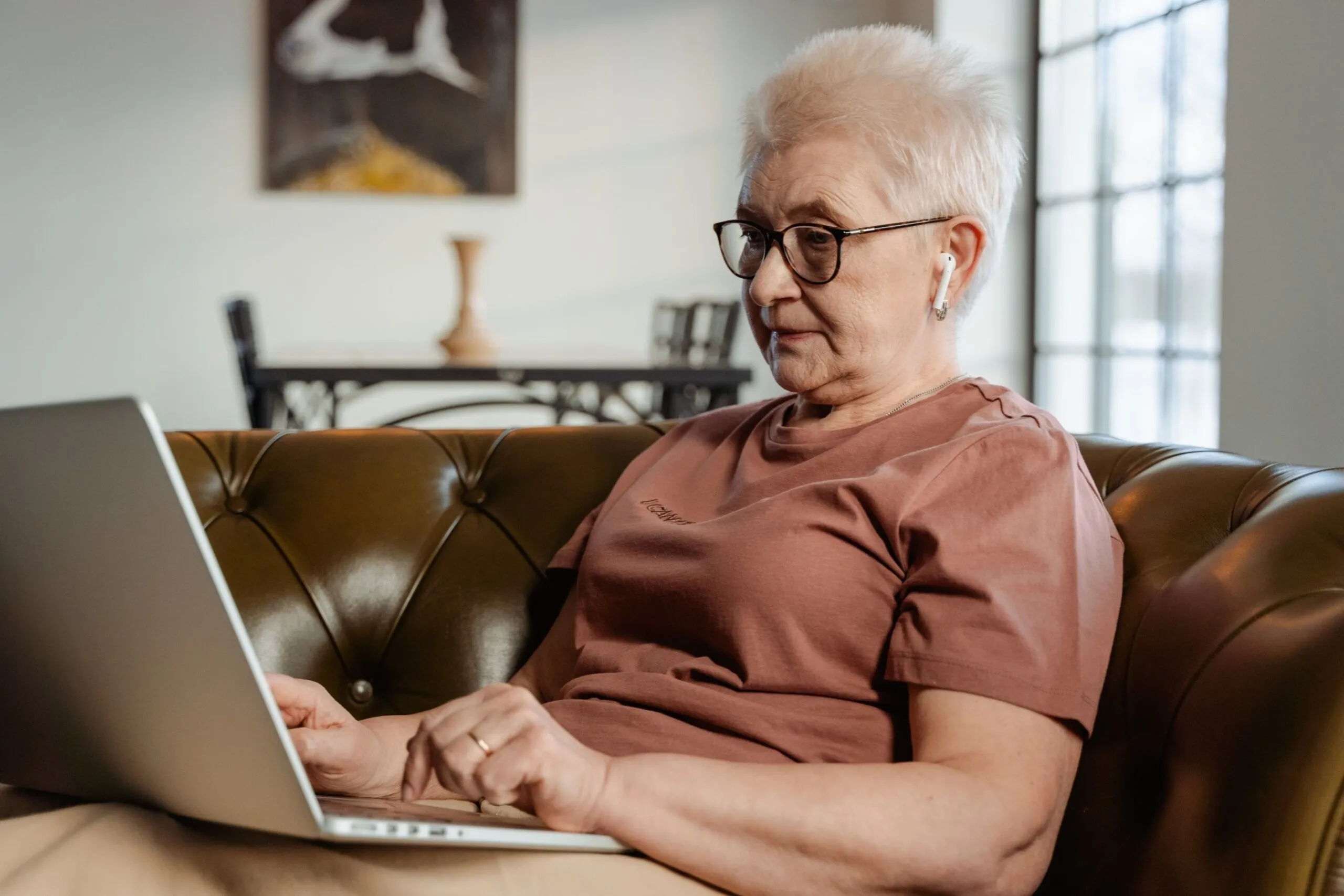Limited Company Expenses – 2025/26 Guide for the UK

If you’re the director of a limited company or a sole trader preparing to change to a limited company, you may be wondering what expenses you can claim as director of a limited company. Understanding what qualifies as a limited company expense and how you can claim these expenses can be significant in reducing your corporate tax burden. Explore topics including allowable expenses, steps for first claiming expenses and the importance of record-keeping to ensure HMRC compliance.
Key Takeaways
- In order for a purchase to qualify, it must be necessary for the running of your business and used exclusively for business.
- You can claim limited company expenses when you file your corporate taxes.
- Keeping careful records helps you claim all your expenses and minimise audit risk.
- Allowable Limited Company Expenses You Can Claim
- Disallowable Limited Company Expenses
- Rules For Limited Company Business Expenses
- How To Claim Expenses as a Limited Company
- How To Keep a Record of Limited Company Business Expenses
- FreshBooks Simplifies Your Expenses and Tax Journey
- Frequently Asked Questions
Allowable Limited Company Expenses You Can Claim
There are a number of business expenses that you can claim as write-offs when you file your business taxes. Some limited company allowable expenses include:
Accommodation Expenses
When you’re travelling for business, you’re able to claim the cost of your hotel or other accommodation as a business expense. This applies only to travel that’s exclusively for business—if you extend a trip for personal reasons, you can’t claim the extra accommodation costs.

Advertising, Marketing, and PR Expenses
Advertising and promotion for your business can be claimed as a write-off on your taxes. This includes a wide array of advertising types, from one-off commercials to ongoing business costs, like keeping your website running. You can also claim some products, like branded merchandise, that promote your business.
Annual Staff Party Expenses
If you host an annual employee event like a holiday party or picnic, you can claim the entertaining costs as tax-deductible expenses. In order to qualify, the event must cost less than £150 per person, and it must be available to all of your employees if they wish to attend.
Bank Charges
Business accounts can accrue a variety of bank fees, from account service charges to interest on business loans. You can claim interest on both loans and credit cards used for your limited company as well as everyday banking fees.
Business Insurance Expenses
You may have a number of business insurance policies for your company, from employer liability to contents insurance. As long as this insurance policy is used exclusively for your limited company, you can claim the policy cost as allowable business expenses.
Equipment Expenses
Equipment that’s used in your office or for other business purposes can be claimed as an expense. This includes everything from office equipment like printers and computers to desks, chairs, and other office furniture.
Health Check and Eye Test Expenses
Eye tests, health checks, and prescription vision aids like glasses can be claimed as a business expense so long as they’re required for screen-based business work.
Pensions
The money you pay into your pension pot is claimable for a 100% tax relief business expense. However, there’s a limit of £60,000 of tax-free contributions for all your pensions, whether business or personal.
Phone Bills
If you have a mobile phone and phone plan that you use exclusively for business, this can be claimed fully as a business expense. If you use your phone for a combination of business and personal calls, you’ll have to separate those and claim only the percentage you use for business. This also applies to business calls you make from your home phone.
Professional Development Expenses
Professional development that’s directly related to your business can usually be claimed as a limited company expense. This includes training programmes and certifications related to your company.
Professional Subscription Expenses
Subscriptions to software that you use for your business can be claimed, as well as other subscriptions directly related to your company. This can include things like related journal and magazine subscriptions, such as interior design magazines for a design and furniture company.
Salary
If you’re the director of your limited company and you pay yourself a salary, this qualifies as an expense of your limited company. You can claim this and your National Insurance Contributions just as you would any other employee’s salary.
Startup Costs
Setting up your company can involve a variety of startup costs, like domain names, accounting and legal services, computers, and more. As long as you claim these costs within 7 years of starting your company (and before you begin trading), they can be included as limited company expenses.
Travel Expenses
If you’re required to be in a certain destination to conduct business, there are several parts of the business trip that you can claim as travel expenses. These include:
- Parking costs
- Public transportation
- Food and drink
- Accommodations
- Vehicle insurance and repairs
These expenses apply to business trips and not to the everyday work commute. If you have to use your own vehicle for the business trip, you’re able to claim a certain amount per mile as a limited company expense.
Use Of Home As Office
If you conduct all or a significant portion of your home for business, you can claim a percentage of utility bills as limited company expenses. You can also claim a percentage of your rent if you rent the space, but only the percentage of the home that is used for business.
Looking for more ways to simplify tax season? Discover how FreshBooks takes the pain out of tax preparation for easy tips and tricks on filing your taxes.
Disallowable Limited Company Expenses
There are many costs that are allowable expenses for limited companies, but accidentally claiming something that doesn’t qualify as allowable expense could put you at risk of an audit. Explore some common LTD company expenses that are not allowed:
Childcare Expenses
While childcare can be necessary to one’s work schedule, the HMRC does not allow it as a claim because it’s not a direct business expense for your company.
Costs of Commuting
Your daily commute to and from work can’t be claimed as a limited company expense. This may seem strange since business travel qualifies, but the commute is labelled as a personal expense.
Depreciation of Assets
Although equipment and other business assets usually depreciate, this doesn’t qualify as a claimable expense. If one of these assets breaks, however, you can claim repairs that need to be made in order for your business to continue running.
Donations Not Made Via Gift Aid
Charitable donations can usually be claimed if they’re to an HMRC-recognized charity, but they must be made via Gift Aid. If your donation doesn’t meet Gift Aid requirements, it won’t be classified as a tax-deductible business expense.
Entertainment
Client entertainment, such as buying meals and drinks for clients, can’t be claimed as a business expense.
Excessive Remuneration
While your salary qualifies as a limited company business expense, payments to yourself must meet reasonable standards. If shareholders consider your payments excessive, they may be labelled excessive remuneration and no longer eligible for deduction.
Income Paid As Dividends
Some income, like salary, qualifies as a limited company expense. Income paid as dividends does not, which may be worth noting if you pay yourself primarily in dividends.
Lunches and Refreshments
Meals while travelling for business typically qualify as a limited company expense, but regular meals and refreshments do not. Even if you have these at your place of work, they can’t be claimed as tax-deductible expenses.
Most Legal Fees
While some legal fees, like obtaining patents, can be written off as business expenses, most other legal fees are not eligible. Generally, in order for professional fees to qualify as a limited company expense, the legal fee in question must be necessary for your business and not avoidable (things like legal aid for resolving fines would be considered avoidable).
Non-Business Gifts
Like business entertainment, gifts to clients are generally not tax deductible. The exception is small gifts under £50 to the same recipient in the relevant tax period, and then only as long as they don’t advertise your business, and they’re not food, drinks, or tobacco products.
Non-Business Travel
Any travel that’s not exclusively for business can’t be claimed as a company expense. This includes non-business travel that’s added on to business or travel costs, such as taking a few extra days to vacation after a business trip.
Penalties and Fines
Even if a fine arises that’s directly related to your business, you can’t claim it as an expense. This is because most claimable expenses need to be necessary for doing business, and incurring fines doesn’t count as a necessary business process.
Personal Expenses
In general, you can only claim expenses directly related to running your limited company. Personal expenses don’t fall under this category, so you can’t claim them as a limited company expense.
Private Use of Company Assets
If you use company assets for personal reasons, you can’t claim any associated expenses. For example, you wouldn’t be able to claim gas mileage when driving a company car for personal travel.
Rules For Limited Company Business Expenses
If you’re the director of a limited company or if you’re transitioning from being a sole trader to a limited company, you’ll need to file a self-assessment to claim tax relief on any limited company expenses.
There are several basic rules for determining whether you can claim something as a limited company business expense:
- It must be exclusively a business cost with no personal element
- It must be necessary for running your business
- You can pay business expenses through your corporate bank account or pay them directly and later get reimbursed from the company account
- You have records of your expenses so that you can show proof to the HMRC if needed
How To Claim Expenses as a Limited Company
To claim expenses as a limited company, keep track of any expenses that qualify as business deductions. The easiest way to do this is by paying with your business bank account, but you can also pay with a personal account and reimburse yourself later by claiming business expenses. Then, add all your qualifying expenses and deduct them from your corporation tax liability when you file your company taxes.
How To Keep a Record of Limited Company Business Expenses
Keeping clear records of all your limited company expenses makes it easier to file, and ensures you have accurate records if you ever need to submit them to the HMRC. Hang on to any receipts and claims, as well as any expenses claimed by your employees. FreshBooks expense and receipt tracking software offers an easy record-keeping solution that lets you record and organise business expenses claimed by you and your employees.
FreshBooks Simplifies Your Expenses and Tax Journey
Claiming limited company expenses can be a significant way to reduce your tax burden and increase profits. An effective system for tracking your expenses helps you claim everything you can so you don’t miss out on any tax relief opportunities.
FreshBooks accounting software is a simple, effective way to manage all your expenses and receipt tracking. Record and organise your limited company expenses, save copies of claims and receipts, and file your taxes through one easy, MTD-compatible software. Try FreshBooks free to get started claiming your expenses today.

FAQs About Limited Company Expenses
Looking for more answers on limited company expenses? Browse these frequently asked questions on mileage claims, company tax brackets, and more.
Can I claim 45p per mile if I have a company car?
The 45p per mile rate only applies if you’re driving a personal car; you can’t claim this rate on a company car. This is because the HMRC assumes you’ll have to pay for other expenses like repairs when driving your own car, while these are classified as other expenses for company cars.
Can I buy a laptop as a business expense?
You can claim a laptop as a business expense so long as you’re using this laptop exclusively for business purposes and it’s necessary for running your company. FreshBooks accounting software helps you keep track of expenses and receipts like electronic equipment so you can claim all your qualifying business expenses.
Can I claim expenses without receipts?
You can claim expenses without receipts so long as you have other proof of the business transaction. This can come in the form of credit card and bank statements to show the amount and be able to prove that the purchase was used for legitimate business expenses.
How much can a limited company earn tax-free?
There’s no tax-free amount of company profits that a limited company can earn, but there are tiers of taxation based on your earnings. Above £50,000 in profits, you’ll pay standard corporation tax rates, but companies earning less may be able to qualify for small profit or marginal relief rates.
More Useful Resources
- How Is Corporation Tax Calculated
- How to Reduce Corporation Tax
- Sole Trader Tax Guide
- Business Asset Disposal Relief
Reviewed by
Levon Kokhlikyan is a Finance Manager and accountant with 18 years of experience in managerial accounting and consolidations. He has a proven track record of success in cost accounting, analyzing financial data, and implementing effective processes. He holds an ACCA accreditation and a bachelor’s degree in social science from Yerevan State University.
RELATED ARTICLES


 EIS Tax Relief – A Detailed Guide for the UK
EIS Tax Relief – A Detailed Guide for the UK SEIS Tax Relief – A Detailed Guide for the UK
SEIS Tax Relief – A Detailed Guide for the UK Business Asset Disposal Relief (BADR)
Business Asset Disposal Relief (BADR) Self Employed Expenses – Which Allowable Expenses Can You Claim?
Self Employed Expenses – Which Allowable Expenses Can You Claim? Tax Relief On Pension Contributions
Tax Relief On Pension Contributions Tax On Rental Income—Guide for Landlords in the UK
Tax On Rental Income—Guide for Landlords in the UK